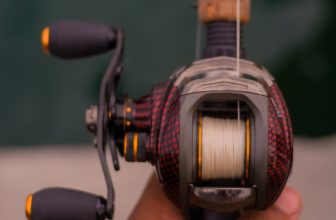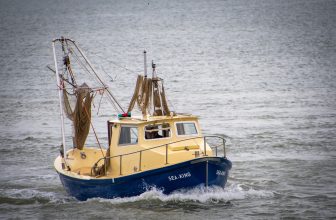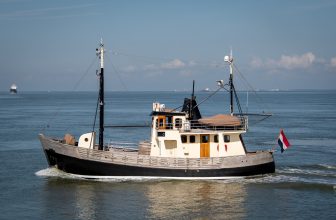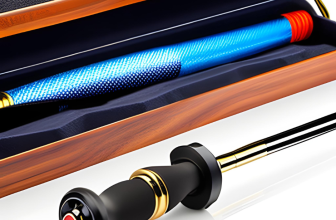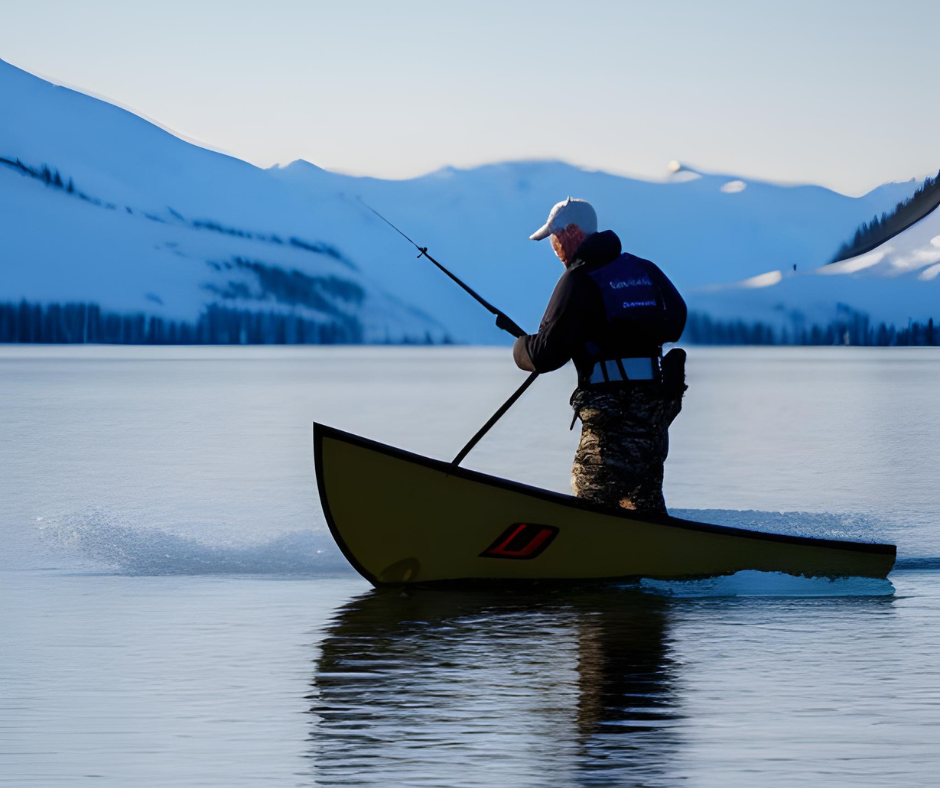
Anglers and hunters know that fishing and hunting on cold water can be a hazardous activity. It’s important to take the right precautions to ensure you and your fellow anglers and hunters stay safe and have a great time.
Knowing the right clothing, equipment, and safety tips to follow can help make your experience a successful and enjoyable one.
So, what precautions should anglers and hunters take when fishing or hunting on cold water? Let’s take a look.
Wear the Right Clothing
When it comes to spending time outdoors in colder temperatures, the right clothing is essential for your comfort and safety. Anglers and hunters should dress in layers, with the base layer providing insulation and the outer layer should be waterproof and breathable.
Avoid cotton and stick to fabrics designed to wick away moisture and keep you warm. It’s also a good idea to bring a hat and gloves, as well as a scarf or gaiter for extra warmth. Choosing fabrics that are bright in color can help you stay visible if you’re out on the water.
Additionally, make sure to bring along a change of clothes in case you get wet. Taking the time to dress appropriately for cold weather fishing or hunting will ensure you have a safe and enjoyable time outdoors.
Use the Right Equipment
You’ll need the right gear to make sure your fishing or hunting trip on cold water is a success! When fishing or hunting on cold water, it’s important to make sure you have the right equipment to help you stay safe and comfortable.
Make sure you have the right type of rod, reel, and line for the type of fish or game you’re looking for. You should also have the appropriate lures, bait, and tackle.
Cold water fishing and hunting require heavier clothing and gear than warm water fishing or hunting, so make sure you have the right clothes for the job. Don’t forget to bring a boat or raft to help you get around the water safely.
If you’re hunting, make sure you have the appropriate firearms or bows and arrows. Finally, don’t forget the necessary safety equipment, such as a life jacket, first-aid kit, and survival gear.
With the right equipment, you can enjoy a safe and successful fishing or hunting trip on cold water.
Practice Safety First
Before you go fishing or hunting on cold water, it’s essential to take safety precautions. Be sure to check the weather conditions and be aware of the potential risks that can come with cold water activities.
Make sure you’re properly equipped and prepared before heading out to ensure a safe and enjoyable experience.
Check the weather conditions
Make sure you check the weather before heading out, so you don’t end up in a chilly situation! Before heading out to hunt or fish in cold water, it’s important to know what weather conditions you can expect.
You should check the temperatures, wind speeds, and precipitation for the area you plan to be in. Here are three key things to remember:
- Make sure you know the temperature of the water before you start your trip.
- Check the forecast for the area to make sure there won’t be any sudden changes in wind speed that could affect your safety or your ability to fish or hunt.
- If possible, plan your trip for a day with low chances of rain to ensure your comfort and safety.
By following these three simple steps, you can make sure you’re prepared for any weather conditions you might encounter while fishing or hunting in cold water.
Be aware of the potential risks
Be aware of the potential risks that come with fishing or hunting in cold water – it’s important to know what you’re getting yourself into! Depending on the region, there may be risks associated with fishing or hunting in cold water such as hypothermia, frostbite, and dehydration.
It’s important to be aware of these potential risks before venturing out. Make sure to dress appropriately and bring extra layers of clothing in case the temperatures drop. Additionally, be sure to bring plenty of water to stay hydrated and snacks to help maintain energy.
Be sure to bring a life jacket in case of an emergency. It’s also important to inform someone of your plans before going out, in case you need to be located. Finally, pay attention to the weather and be prepared to turn back if the conditions become too harsh.
Taking these precautions can help ensure a safe and enjoyable experience when fishing or hunting in cold water.
Bring a Buddy
If you’re heading out to fish or hunt on cold water, don’t go alone – bring a buddy! Having a companion when you’re out on the water can be a great safety measure, especially in cold weather.
Not only can a buddy be someone to help you if you fall in the water, but they can also help you out of difficult situations on the ice or in a boat. They can also help you keep an eye on the changing weather conditions and alert you to any potential dangers.
Having a friend to share the experience with can also add an extra layer of fun and enjoyment to your fishing or hunting trip. Not only can you enjoy the scenery and the thrill of the sport together, but you can also help each other out in more practical ways.
For example, one person can keep a lookout for game while the other sets up a net or prepares a lure. Sharing the experience with someone else can make the whole outing more enjoyable and memorable.
Know the Local Regulations
Before heading out, make sure you’re familiar with the local regulations for fishing and hunting. It’ll save you from running into any unwanted surprises. It’s important to know what type of equipment you can and can’t use, the size and number of fish or game you can take, whether or not you have to have a fishing or hunting license, and any other relevant laws and regulations.
It’s also important to check the local weather conditions and water temperature when planning a fishing or hunting trip. Here are some things to look out for:
- Make sure to check the local regulations for allowable tackle and firearms.
- Determine the size and bag limits of the fish or game that can be harvested.
- Make sure you have the required licenses and permits to fish or hunt.
- Be aware of any seasonal restrictions or closures that may be in effect.
Frequently Asked Questions
What type of clothing should I wear when fishing or hunting in cold water?
When fishing or hunting in cold water, you should wear clothing that’ll keep you warm and dry. Layering is key. Start with a thin base layer like a moisture-wicking long-sleeve shirt. Then add a thicker mid-layer, like a fleece or wool sweater. Make sure your outer layer is waterproof. This could be a jacket made of breathable nylon or Gore-Tex. Wear pants with a water-resistant outer layer and insulated inner layers, and a good pair of waterproof boots. Don’t forget a waterproof hat and gloves to help keep you warm and dry.
What type of equipment should I use for fishing or hunting in cold water?
When fishing or hunting in cold water, it’s important to use the right equipment. Wearing the appropriate clothing is essential, but your gear is equally important.
Make sure to bring plenty of warm layers, a waterproof jacket, and a hat or hood.
For fishing, consider using a rod with a good action for cold weather. Also, bring a bait bucket filled with hot water to keep bait alive longer.
For hunting, use a gun with a good trigger action that won’t freeze up in cold temperatures. Also, bring a good pair of binoculars.
What safety measures should I take when fishing or hunting in cold water?
When fishing or hunting in cold water, safety should always be your top priority. Make sure to wear the proper cold weather gear, like a wetsuit or insulated clothing, that will keep you warm and dry. Wear a personal flotation device (PFD) and check the weather forecast before you go out.
Bring a whistle or other signaling device and a first-aid kit. Always have a partner with you to watch out for each other, and stay away from any icy patches or dangerous areas. Be aware of your surroundings and stay visible so that other anglers or hunters can see you.
By taking these safety measures, you can ensure a safe and enjoyable experience while fishing or hunting in cold water.
Are there any restrictions on fishing or hunting in cold water?
Fishing and hunting in cold water can be a great experience, but it’s important to remember that certain restrictions and laws apply. Depending on where you are, you may need to check with local authorities to make sure you’re following all the necessary regulations.
Additionally, make sure you’re properly dressed for the cold weather and that you have the necessary safety equipment in case of an emergency.
Is it better to fish or hunt alone or with a partner in cold water?
Fishing or hunting in cold water can be a great experience. Whether you decide to fish or hunt alone or with a partner is up to you.
Fishing alone can provide a sense of peace and tranquility, and you can tailor your fishing to focus solely on what you want to catch. However, fishing with a partner can be more enjoyable and provide support and camaraderie.
If you’re hunting, having a partner can help to keep you safe and provide a second set of eyes to spot potential game. Ultimately, it’s your choice to make and both can be rewarding experiences.
Conclusion
It’s important to take precautions when fishing or hunting on cold water. Wear the right clothing and use the right equipment so you stay safe and warm. Practice safety first, bring a buddy, and know the local regulations to ensure a successful trip.
And don’t forget to have fun! With the right precautions, fishing and hunting on cold water can be a rewarding and enjoyable experience. So dress warm, stay safe, and enjoy the outdoors.



